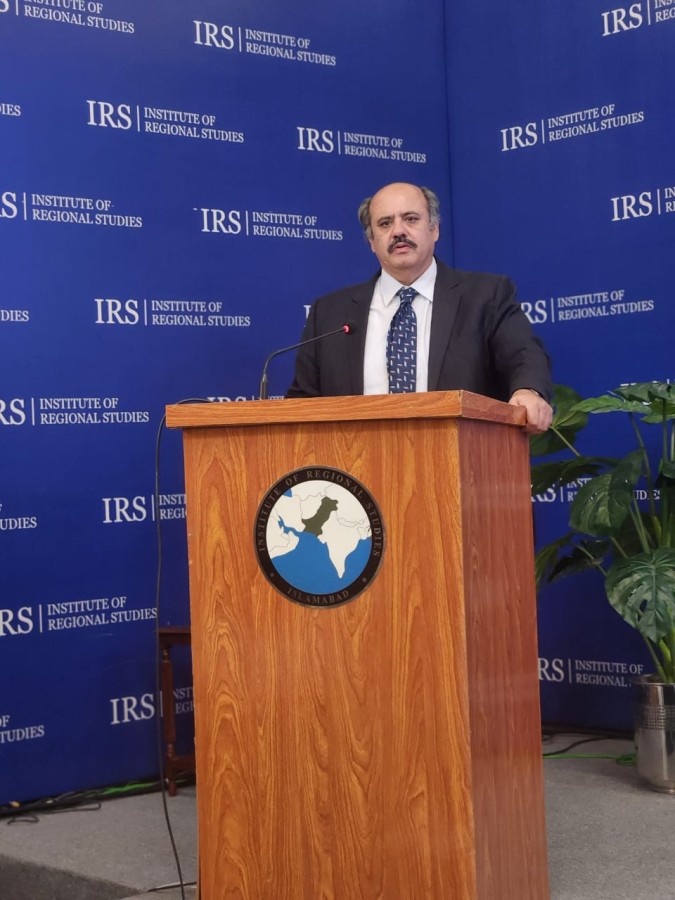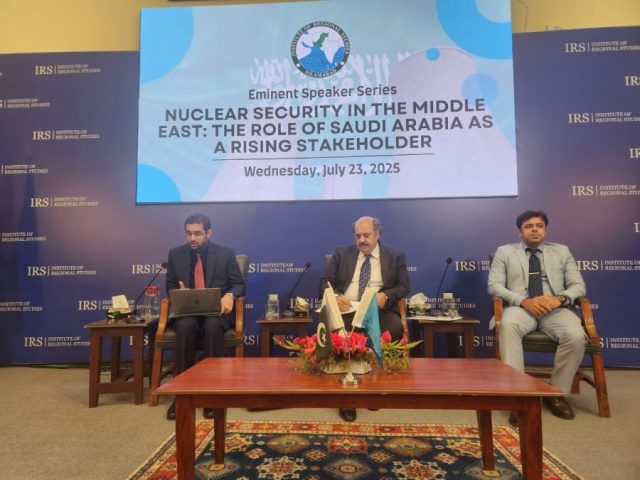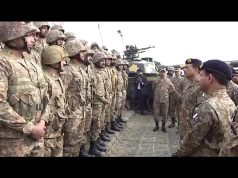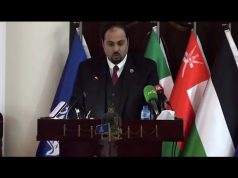ISLAMABAD, Wednesday, July 23, 2025 (WNP): The Institute of Regional Studies (IRS) on Wednesday hosted a thought-provoking seminar titled “Nuclear Security in the Middle East: The Role of Saudi Arabia as a Rising Stakeholder,” shedding light on the Kingdom’s evolving nuclear trajectory amid a complex and conflict-prone regional landscape.
Opening the session, Dr. Rizwan Naseer, Senior Research Fellow at IRS, emphasized the growing significance of nuclear politics in strategic studies and underscored the role of global non-proliferation frameworks—particularly the Nuclear Non-Proliferation Treaty (NPT)—in addressing modern proliferation challenges.
The keynote address was delivered by Dr. Zafar Nawaz Jaspal, Dean and Professor at the School of Politics and International Relations, Quaid-i-Azam University. Dr. Jaspal explored Saudi Arabia’s increasing interest in nuclear energy, driven by both regional dynamics and strategic imperatives.

He identified four key drivers behind Riyadh’s nuclear policy: strategic rivalry with Iran, Tehran’s continued advancement under the NPT framework, shifts in the global geopolitical order, and Saudi Arabia’s own ambitions for sustainable energy development.
“Saudi Arabia’s nuclear trajectory is not only about energy diversification—it’s deeply tied to the broader strategic competition in the region,” Dr. Jaspal said.
He further argued that despite public anxieties, the risks of nuclear energy are statistically lower than those associated with traditional energy sources like coal mining.
Dr. Jaspal also discussed the dual-use nature of nuclear technology, noting that while Article III and IV of the NPT grant Saudi Arabia the right to pursue peaceful nuclear technology, civilian enrichment programs could theoretically be diverted toward weapons development—raising legitimate concerns in the international community.
The seminar concluded with a lively Q&A session, where scholars and students engaged in a nuanced discussion on the implications of Saudi Arabia’s nuclear policy for regional and global security.
The event highlighted the critical need for continued scholarly engagement on nuclear issues in the Middle East, particularly as new players like Saudi Arabia assert their influence in the nuclear domain.




